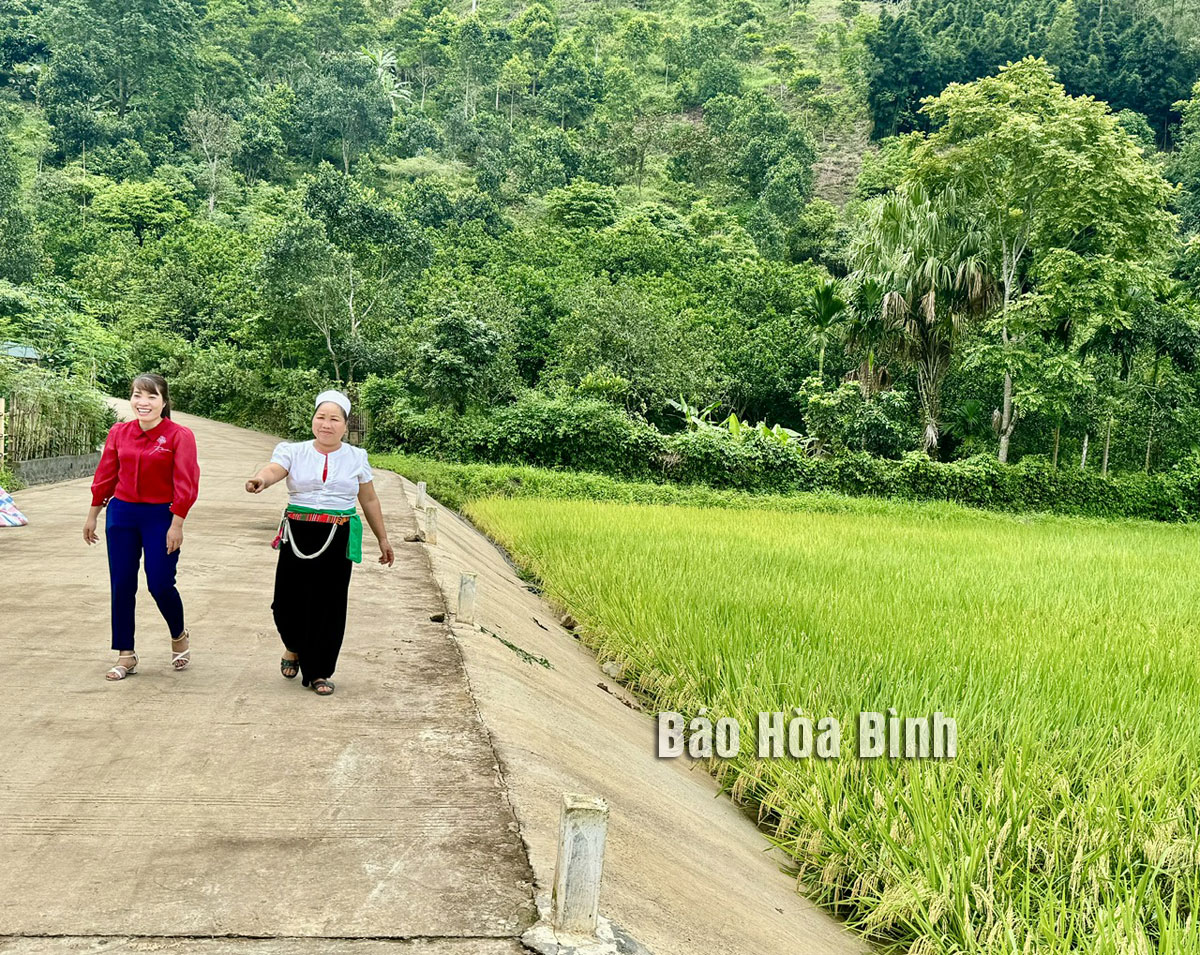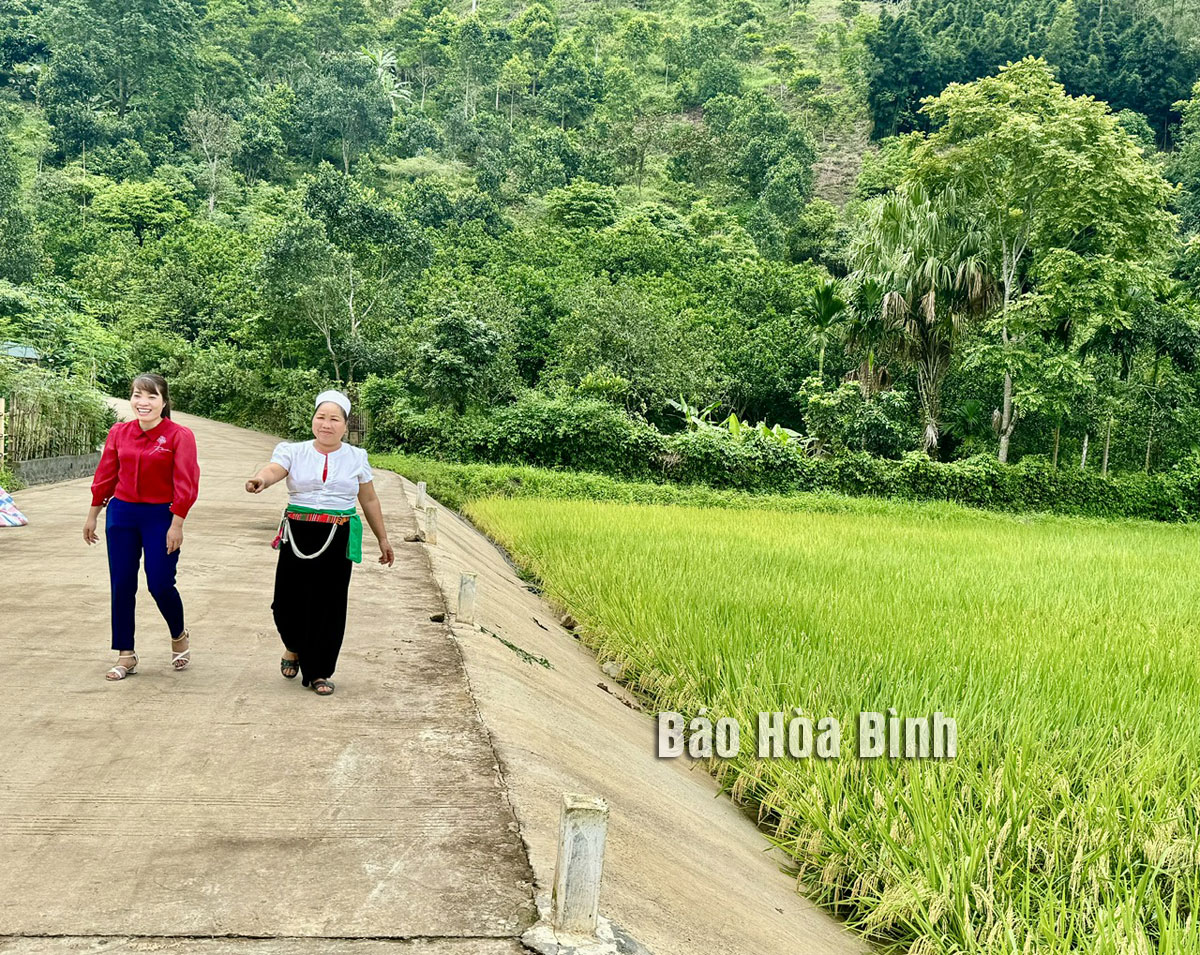
Thanks to the spirit of land donation for the community, the road connecting two residential clusters in Doan Ket 1 hamlet, Quang Tien Commune (Hoa Binh city), has been concreted and widened, facilitating economic and social development and new-style rural building.
The road connecting two
residential clusters in Doan Ket 1 hamlet, Quang Tien Commune (Hoa Binh city)
is concreted and widened.
Nguyen Thi Lan, head of the committee for the front work of Doan Ket 1 hamlet, attributed the result to efforts of the local Party organisation and authorities in calling on residents to donate land for building roads.
Eight families in the hamlet donated a total of
nearly 1,544 sq.m of garden and rice land serving the construction of rural
roads and bridges. A culture house has been built with a total
investment of 1 billion VND (over 39,280 USD), 30% of which was contributed by
local households. The project will be completed and put into operation in late
2024.
Nguyen Cuong Bien, Vice Chairman of the People's
Committee of Quang Tien commune, said not only Doan Ket 1 hamlet but many other
residential areas such as Mon, Quyet Tien, and Doan Ket 2, also pay attention
to promoting the movement of building cultural life in connection with the
new-style rural area building programme.
Currently, 100% of the residential areas in the
commune have culture houses. The commune is planning to construct three culture
houses in Me, Doan Ket 1, and Doan Ket 2 hamlets. The commune is home to 1,400 Muong ethnic
minority households, accounting for 98% of its total population. With efforts
from the local Party organisation, administration, and people, the commune was
recognised as a new-style rural commune in 2021, and it is moving towards an
advanced new-style rural area in the time to come.
People always comply well with the Party's
policies and the State's laws. The rate of cultural households is 85.6% of the
total. It set a target to increase per capita income to
68 million VND in 2024, up 10 million VND compared to 2023.
The emulation movement "Hoa Binh joining hands to build new-style rural areas” has been widely spreading, becoming a driving force that motivates the localities to renew rural landscapes and improve the material and spiritual lives of the residents. In this movement, the people play a central role-both as the main implementers and direct beneficiaries of its outcomes.
In response to the global digital revolution, Hoa Binh Newspaper is transforming itself into a modern and multi-platform media hub, blending cutting-edge technology with a restructured newsroom and a new generation of tech-savvy journalists.
Hoa Binh province’s Association of the Elderly recently held a conference to review the project on expanding the inter-generation self-help club model until 2025.
In a move to implement Resolution No. 57-NQ/TW, issued on December 22, 2024 by the Politburo, which targets breakthroughs in science-technology development, innovation, and digital transformation, the Hoa Binh provincial Department of Health has issued a plan to roll out the "Digital Literacy for All” campaign within the local health sector.
An Nghia Commune (Lạc Sơn District) is one of the communes that achieved the tha standard of the national new rural area in 2018. Entering a new development phase, the commune is now trying to meet the criteria for the advanced new rural development. With the strong political will and the public consensus, the commune is gradually overcoming the challenges to reach this goal, aiming for the sustainable development.



